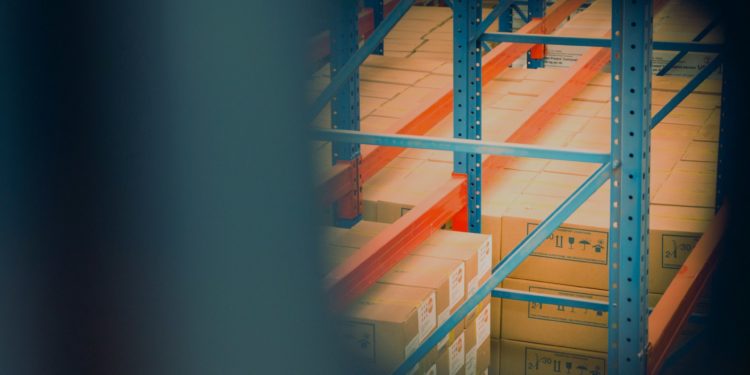Supply chains use an extensive amount of resources. Many of these resources are often a great source of waste. 4.2 million tonnes of food is wasted or lost within the food supply chain in the UK. Alongside this, 1.5 million tonnes is wasted in manufacturing.
These staggering statistics highlight the importance of developing and implementing sustainable supply chains into businesses. Choosing to switch to a sustainable supply chain can help make a noticeable difference in the company. Some of these changes could impact the company’s overall success, as they could help bring in more sales and potential investors.
These are some reasons why sustainable supply chains are essential in today’s modern and ever-evolving world.
Reasons For A Sustainable Supply Chain
There is an increasing amount of pressure on companies to implement greener practices. Consumer behaviour has shifted, and it has recently developed a greater demand for companies to produce greener products and show how they are reducing their carbon footprint.
In addition, more employees, investors and governments have also added to this growing pressure on companies. Employees want to work for businesses that share similar values as their own around climate change.
Investing in a sustainable supply chain could benefit businesses, and here are a few reasons why.
- Impact On Environment – The fight against climate change remains a topic heavily discussed in the news. New statistics continuously reveal the frightening reality of the world if action is not taken soon. Businesses can utilise the opportunity of developing a sustainable supply chain to help make their business greener. It provides them with an additional opportunity to reduce their carbon footprint and protect the environment.
- Increasing Demand – Consumers want more sustainable products on the market. There is a demand from consumers for businesses to show how they are being sustainable. Being ahead of the trend and implementing a sustainable supply chain could positively impact a business. The main advantage is the reduced carbon footprint and waste. The second is the marketing value it can provide. Companies can market how they have changed their strategies to become greener. Marketing this quality could help to attract potential consumers. These potential consumers could lead to sales, which will help generate a profit for the business.
- Meet Compliance Standards – To combat climate change, governments are looking to introduce regulations into supply chain sustainability. Some of the rules include tracing back the disposal of electronics, pharmaceuticals and avoidance of conflict materials. Businesses that update their operations to meet these regulations early can put themselves ahead of the trend.
- Help Save Costs – Finances play a vital role in business. It enables companies to achieve their set targets, find new areas to expand to, and invest in systems and equipment to help them reach these new goals. However, the common misconception is that it comes at a high cost to become a more sustainable business. The initial costs for implementing sustainable methods, equipment or using sustainable materials can be higher than other non-sustainable and energy-efficient options. The long term benefits of switching to sustainable options can allow businesses to save money on the reduced bill costs. The reduced waste produced combined with the increase in efficiency from the buildings, machinery, and vehicles can help generate healthy returns for the business.
- Opportunities For New Beginnings – Businesses with a sustainable supply chain are more appealing to companies looking for a new partnership. A business that has implemented methods to make it a sustainable company will likely have values that match another business. These matching values can open the door to a vast range of opportunities and new business ventures.
How To Implement A Sustainable Supply Chain
Understanding the advantages of switching to a sustainable supply chain should encourage business leaders to make the change. Knowing how to develop and implement a sustainable supply chain is a hurdle many leaders will fall.
For business leaders ready to switch to a more environmentally-friendly approach, here are a few ways to implement a sustainable supply chain.
Learn About The Process
Implementing a sustainable supply chain can be challenging. If business leaders are unsure of where to start, it could create a weak foundation to build on. Consider investing in a University of Cambridge Sustainable Supply Chain Management course. The course enables business leaders to learn about supply chain management and green supply chain management.
The CISL Sustainable Supply Chain Management online course is a short course that can provide business leaders with a wealth of information surrounding sustainability in supply chain management. Business leaders should take the time to learn about supply chain sustainability on a supply chain management short course. The information and strategies can later be implemented into their sustainable supply chain.
Identify Issues With Supply Chain
To create a sustainable supply chain, identifying the areas that could be improved in the current process is one of the first steps. Leaders should analyse the overview of their existing supply chain. They can focus on the different aspects within the supply chain and spot any areas of weakness or opportunities for improvement. Not all factors within the supply chain will be easy to identify. The emissions from transport will be difficult to identify, yet they can be improved to create a greener process.
In the current supply chain process, there will most likely be not as obvious as others. Some will likely become noticeable if something happened within the warehouse or an employee was injured. For example, the working conditions might be below standard, and numerous health and safety risks have not been addressed. Leaders should address these areas to help them improve their current supply chain and alter it to become a sustainable supply chain.
Tackle Fuel Consumption
One of the leading contributors to climate change is emissions from cars. In the supply chain process, transport is a critical element. Fortunately, it is an element that can be made greener with a few alterations. Companies can reduce fuel consumption by minor changes, encouraging drivers to stop running their engines unnecessarily. The more significant changes come from implementing fuel-efficient driving. Drivers can adapt driving techniques that will enable them to maximise the efficiency of a modern engine. Adopting these techniques can help make a noticeable difference in fuel costs and reduce emissions produced by a company.
Implementing sustainable products, machinery, and alterations can have an expensive upfront cost. One of these includes aerodynamic improvements to delivery vehicles. The upfront cost to make these changes can be high; however, it can deliver significant savings and reduce its carbon footprint in the long term.
The Bottom Line
Integrating a sustainable supply chain into a business holds great importance. It is more than companies becoming environmentally conscious and implementing strategies to help.
Becoming a more environmentally-conscious business and implementing strategies to achieve this can benefit a company. It can help to improve its reputation, making it a more appealing choice for both consumers and investors.
Switching to a sustainable supply chain can also help reduce costs, allowing businesses to invest in more sustainable methods and ways to grow the company. The ultimate reason and benefit for switching to sustainability are its benefits to the planet. Companies can reduce their carbon footprint, emissions and wastage by developing a sustainable supply chain.


![7 Best POS Software in the UK [2026 Edition]](https://todaynews.co.uk/wp-content/uploads/2026/02/7-Best-POS-Software-in-the-UK-2026-Edition-360x180.png)








































































